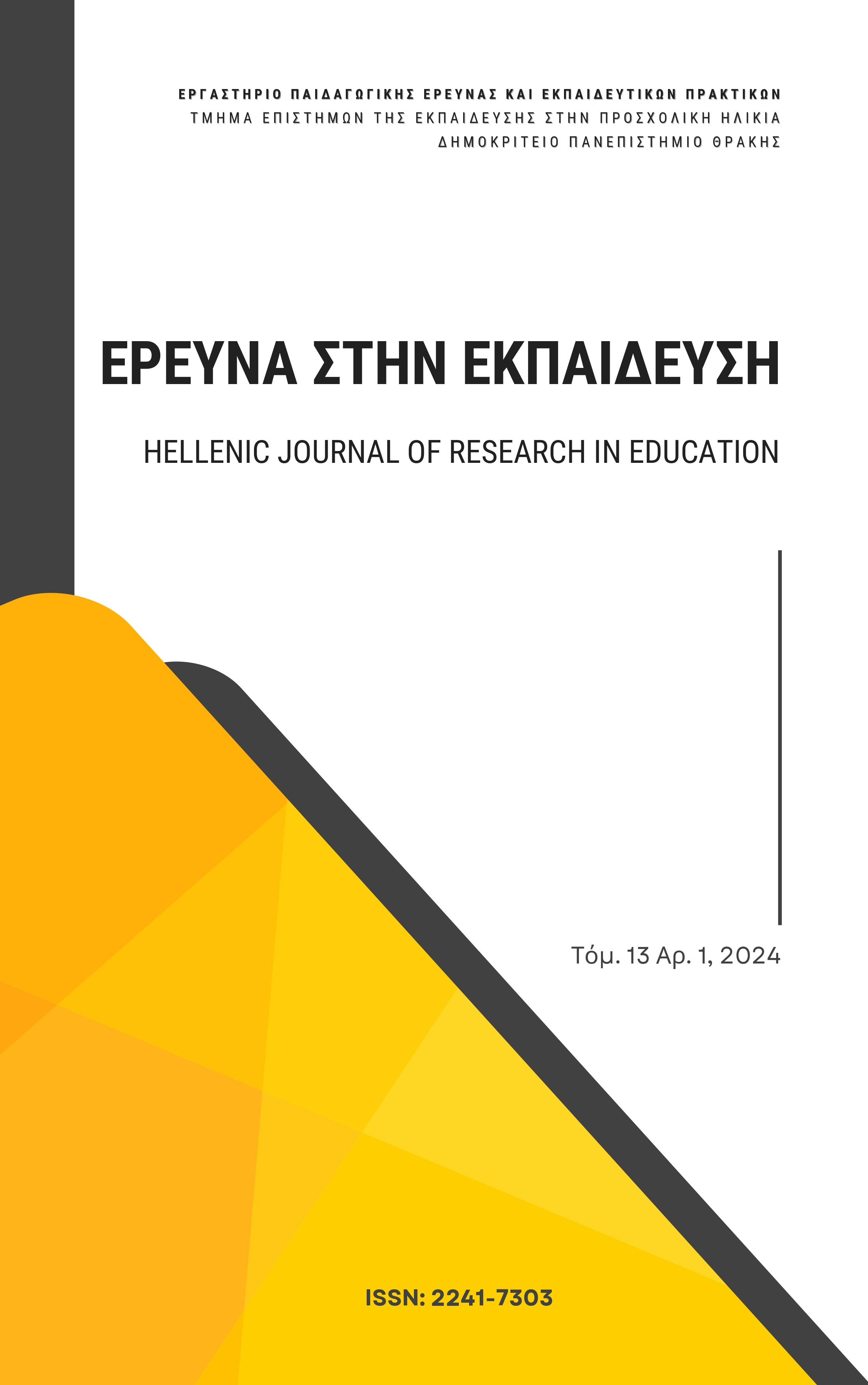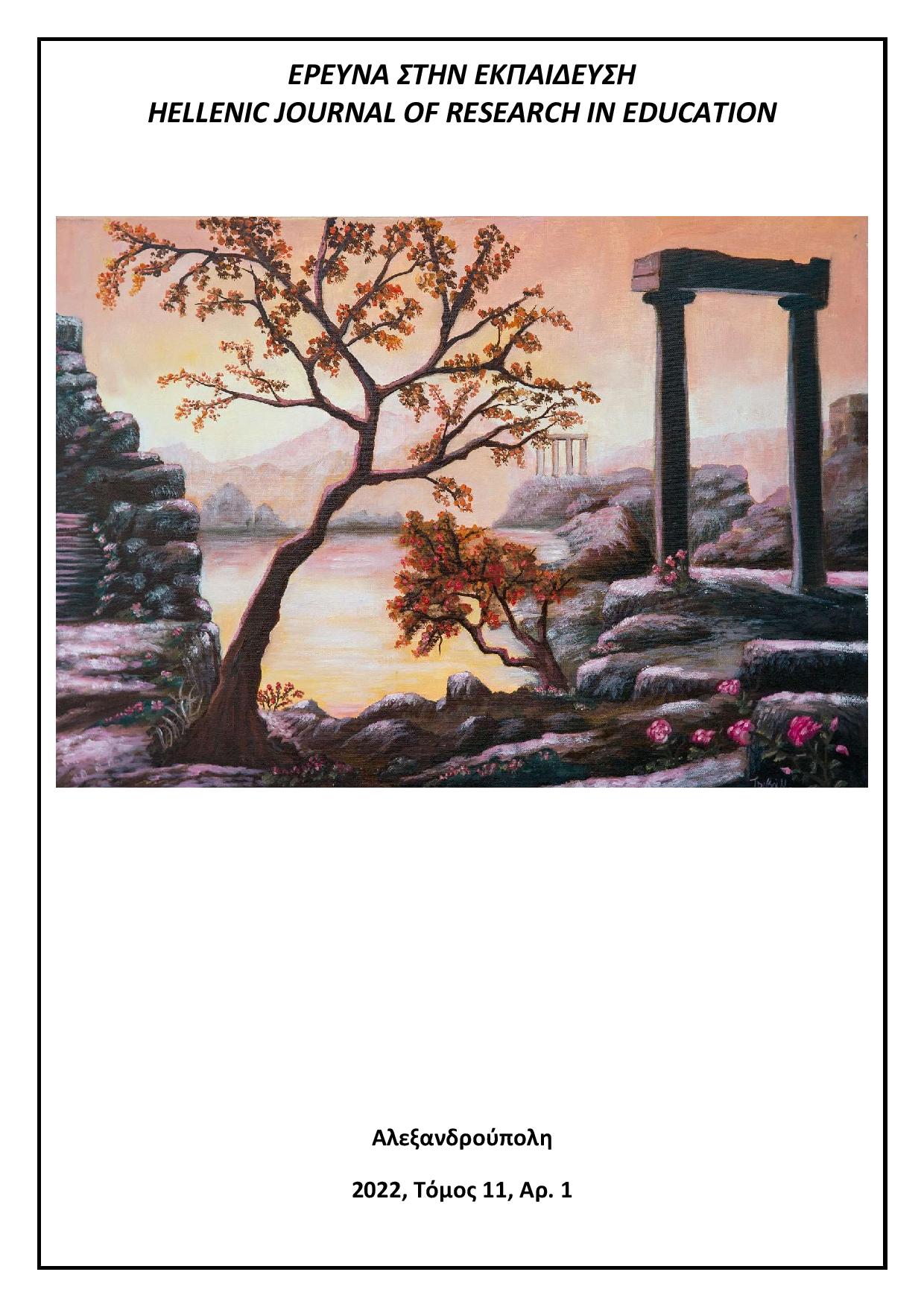Αντιλήψεις Εκπαιδευτικών για την Αυτοαποτελεσματικότητά τους και την Ποιότητα Επαγγελματικής Ζωής

Περίληψη
Σκοπός της έρευνας ήταν η διερεύνηση των αντιλήψεων των εκπαιδευτικών για την αυτοαποτελεσματικότητα και την ποιότητα της επαγγελματικής τους ζωής. Επιπλέον, μελετήθηκε η σχέση μεταξύ των δύο εννοιών και η ύπαρξη διαφορών μεταξύ των αντιλήψεων των εκπαιδευτικών ως προς το φύλο, την ηλικία, την βαθμίδα εκπαίδευσης και τα έτη προϋπηρεσίας. Τέλος, μελετήθηκε ο προβλεπτικός ρόλος της αυτοαποτελεσματικότητας στην ποιότητα της επαγγελματικής ζωής των εκπαιδευτικών. Στην έρευνα συμμετείχαν 332 εκπαιδευτικοί πρωτοβάθμιας και δευτεροβάθμιας εκπαίδευσης από σχολεία της ευρύτερης περιοχής της Αττικής, οι οποίοι συμπλήρωσαν διαδικτυακά την Κλίμακα της Αίσθησης Αποτελεσματικότητας των Εκπαιδευτικών (Teachers’ Sense of Efficacy Scale), την Κλίμακα Ποιότητας Επαγγελματικής Ζωής (Professional Quality of Life Scale) και ένα ερωτηματολόγιο δημογραφικών χαρακτηριστικών. Τα αποτελέσματα έδειξαν ότι οι εκπαιδευτικοί έχουν θετικές αντιλήψεις για την αυτοαποτελεσματικότητά τους και για την ποιότητα της επαγγελματικής τους ζωής. Βρέθηκε στατιστικώς σημαντική, αλλά χαμηλή, αρνητική συσχέτιση μεταξύ της αυτοαποτελεσματικότητας και της επαγγελματικής εξουθένωσης και στατιστικώς σημαντική, μέτρια, θετική συσχέτιση μεταξύ της αυτοαποτελεσματικότητας και της ικανοποίησης συμπόνιας. Επίσης, παρατηρήθηκαν στατιστικώς σημαντικές διαφορές ανάμεσα σε άνδρες και γυναίκες όσον αφορά το δευτερογενές τραυματικό στρες και την ικανοποίηση συμπόνιας και στατιστικώς σημαντικές διαφορές ως προς την αυτοαποτελεσματικότητα των εκπαιδευτικών, ανάλογα με τα έτη προϋπηρεσίας τους. Τέλος, βρέθηκε ότι η αυτοαποτελεσματικότητα αποτελεί προβλεπτικό παράγοντα της ικανοποίησης συμπόνιας και της επαγγελματικής εξουθένωσης. Τα ευρήματα αναλύονται σε σχέση με τη σύγχρονη βιβλιογραφία.
Λεπτομέρειες άρθρου
- Πώς να δημιουργήσετε Αναφορές
-
Λαμπροπούλου Α., & Κουτρουμπή Μ. (2024). Αντιλήψεις Εκπαιδευτικών για την Αυτοαποτελεσματικότητά τους και την Ποιότητα Επαγγελματικής Ζωής . Έρευνα στην Εκπαίδευση, 13(1), 47–65. https://doi.org/10.12681/hjre.35618
- Τεύχος
- Τόμ. 13 Αρ. 1 (2024)
- Ενότητα
- Άρθρα

Αυτή η εργασία είναι αδειοδοτημένη υπό το CC Αναφορά Δημιουργού – Μη Εμπορική Χρήση – Παρόμοια Διανομή 4.0.
Τα πνευματικά δικαιώματα των άρθρων του περιοδικού ανήκουν στους συγγραφείς. Τα άρθρα διατίθενται με άδειες Creative Commons CC-BC-SA 4.0



